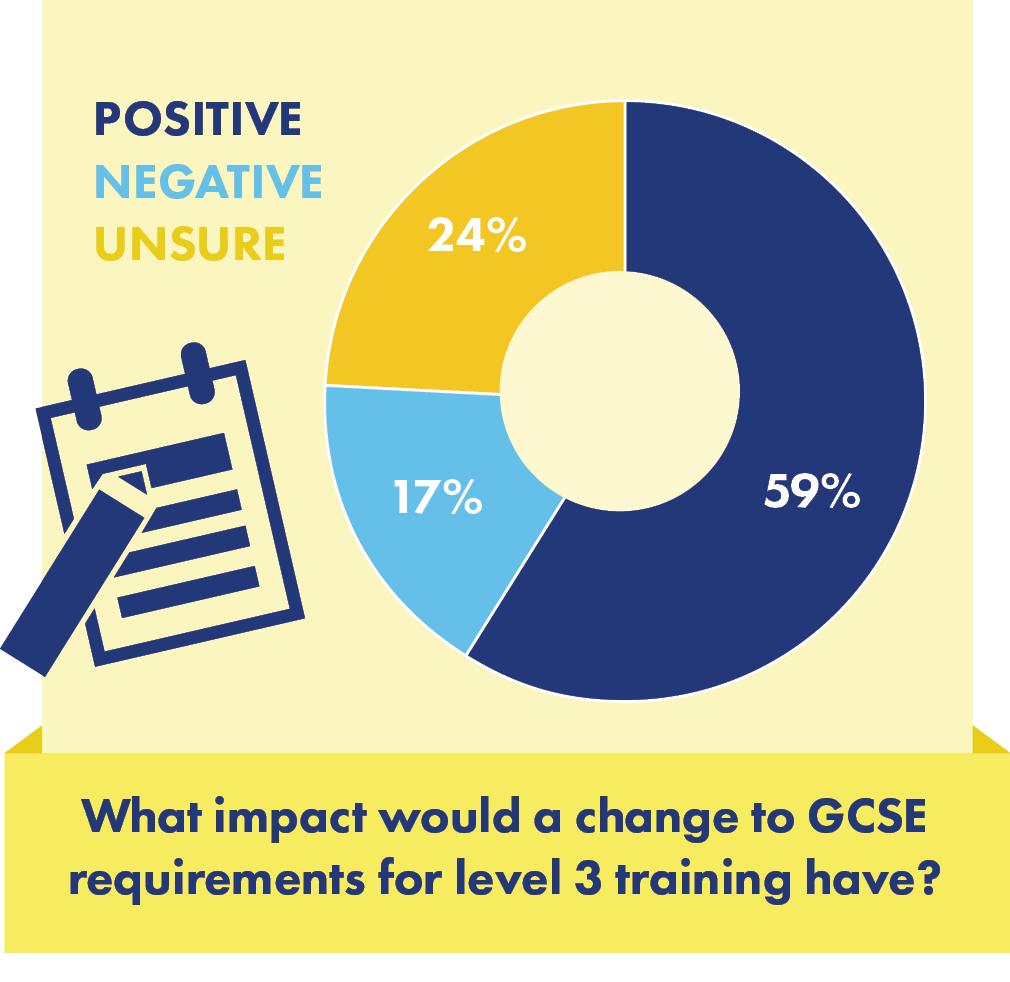NDNA calls for Government to act to reverse the catastrophic recruitment crisis so nurseries can deliver the 30 hour funded childcare promise.
The main reason for staff leaving and a lack of suitable candidates is the requirement for qualified staff to hold GCSE grade C or above in maths and English.
Stella Ziolkowski, NDNA’s Director of Quality and Workforce Development, said: “The results of our latest workforce survey show the breadth of this recruitment and retention crisis, backing up anecdotal information from our members.
“Numbers of qualified staff are dropping too low, which will have a detrimental impact on the quality of early years education, the single most important factor in reducing the attainment gap and supporting children to achieve.
“Unless the current double whammy of staff leaving and few staff applying for practitioner positions is addressed urgently, we risk that there won’t be enough nursery places to be able to deliver the 30 hours free childcare promise.
“This requirement is preventing many good candidates from applying for positions or progressing to higher qualifications within the nursery.
“We urge the new childcare minister Caroline Dinenage to change the GCSE requirement to one for practical everyday maths and English as part of her promised early years workforce strategy to ease this escalating crisis. Quality, experienced candidates without GCSEs at these grades must be allowed to demonstrate their skills and knowledge to support our children to reach their full potential.”
This year’s survey represented the views of 278 nursery owners and managers employing 12,500 practitioners caring for more than 58,000 children. It also included responses from an additional 385 individual practitioners.
Stella added: “We have been campaigning for years for adequate investment in the sector to attract and retain good candidates to improve and in some places maintain good quality provision. Low pay is the legacy of years of underfunding for “free” places which must be addressed. But a change to the GCSE requirements will give the sector the boost it needs in the meantime to reverse the worrying downward spiral.
“We look forward to the Department for Education’s forthcoming workforce strategy which we want to address the GCSE requirements, provide progression pathways, address training accessibility and affordability and make early years an attractive career of choice for bright, vocational candidates.”
Key survey findings:
• GCSE requirements single biggest reason for the escalating recruitment and retention crisis along with relatively low salaries
• Qualifications of workforce dropping (numbers of level three qualified staff and above have dropped from 83% to 75% since 2015)
• Overall turnover higher than previous years at 19% with level threes up to 21% due to low wages and lack of progression – level twos and threes cannot progress if they don’t have these GCSE requirements
• More than half the current level threes and more than two thirds of level twos don’t have the GCSE requirements so can’t progress/feel undervalued
• Many settings are not employing level twos or unqualified staff at all without these GCSE qualifications
• The majority of employers say changing the requirements would have a positive impact on their business
• Many employers are worried about rising costs which include using agency staff to cover vacancies, keeping pace with the National Living Wage and pension auto-enrolment costs. These burdens are proving too much for many small businesses
• The majority of employers have reduced staff training budgets as a result of these heavy business burdens
• There is insufficient high-quality affordable training, in particular training for staff to support children with special educational needs and disability (SEND)
NDNA’s Key Recommendations to Government:
• Workforce strategy must be clearly costed and account for funding shortfalls for the delivery of 30 hours and the National Living Wage increases
• Include financial investment from Government to address workforce improvement and continued professional development with a particular focus on supporting children with SEND
• Change the requirements for grade A*-C in maths and English GCSEs to accept revised functional skills, whilst maintaining a continued focus on improving quality
• Consider affordability of CPD for the sector to prevent a negative impact in driving up costs of childcare for parents
• Give long-term commitment for the development of the early years workforce with clear progression pathways that predict the skills gaps for the next five to ten years
• Have a strong focus on attracting new candidates to the workforce as well as retaining those already employed
• Focus on a vision of level three staff delivering quality early education and a graduate leading practice in every setting
• Government must ensure that the school system is challenged and supported to improve the number of pupils exiting with both English and maths at Grade C or above.

